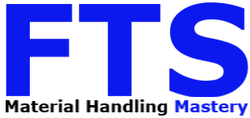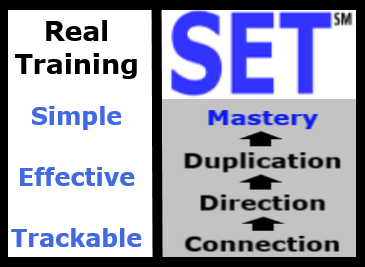
It is often said that those who can’t do, teach. Though there may be some truth in the previous statement, and I didn’t come up with it, it’s important to understand that training is not teaching.
Although the highly capable are those usually considered for the position of instructor or trainer, being the best isn’t always a good qualifier. However, those chosen to provide training should have a functioning and workable foundation in whatever skill or topic they are training on.
Experience is essential, but the foundation is more critical.
An organization that implements real training will produce real trainers. And since trainers are leaders, that same organization will also become a leadership factory… not to give away the payoff at the end.
On the way to the payoff from putting in the work of genuine training, three perks should be taking place along with the corresponding perils.
Perk #1- Real training makes things simple
“The definition of genius is taking the complex and making it simple.” –Albert Einstein.
–Albert Einstein.
Training, when done correctly, does make things simple. Real training makes things simple to understand. Anything simple will be more retainable. Then, as a byproduct of continued reinforcement, which is leadership, processes tend to stay simple, and those who work in those processes are more likely to carry them out more precisely. Pre-shift inspections are an example of this.
Sometimes the process must change to match the vision of simplicity, and sometimes the new idea results from training. The phenomenon happens during intentional development because simplification is one of the only accurate indicators of a growth-oriented culture.
Training doesn’t just cause the simplification of organizations; it requires it. All can agree that the primary purpose of training is to develop people for the organization’s requirements. Therefore, developing leaders would facilitate an environment for those involved to apply brain-power to improve things, which usually means engineering things to be more straightforward to understand.
Peril #1- Simple Is Neither easy nor popular
Have you ever heard the term “it’s simple, but not easy?” If you think about it, doesn’t it mean that it’s been made complex, and now you have to make it simple? Or maybe it’s simple, but you will tend to make it complex.
Without much effort to keep things simple, they will become complex.
Things become complex or complicated because of habitual behavior and thinking. Habits are biological. That means they are there because of the neurological pathways in the limbic part of the brain. It’s the subconscious, and many times the resistance is unintentional. Most wouldn’t speak affection for the complicated, but many will resist simplification tactics because of the “habit” of complexity.
If simplicity is the goal, simplifying is the trainer’s role. In other words, trainers must prepare and make the training as simple as possible. How much you prepare shows how much you care. Like John Maxwell says, “no one cares how much you know until they know how much you care.” Trainers should work to facilitate in a way that makes it seem simple.
Another ingredient that can help to break the “resistance” is the upfront notification of the goal. Letting the candidates know the endgame at the beginning is critical because it sets the tone and puts them at ease. The trainees will benefit more from the work put in by the facilitator when they’ve spent the class with the right impression. They will unconsciously work to match the nature of the course they just completed.
Perk # 2- Real training Builds Up the Foundation
Real training builds up the foundationally by building up from the foundation. And yes, that is what I meant to say.
This is where training makes it simple and easy. Foundational Training is first mastering the basic levels and then taking them with you to the advanced levels. This quality of activity requires the most discipline and has the highest reward because of its immense substance.
Building firmly from the foundation is building the foundation. When an organization implements the discipline to train foundationally, its structure becomes strong enough to protect the foundation. A contrast to Foundational Training is when the lower levels are abandoned, causing the system to be weak and vary in strength throughout. Then naturally, the more vulnerable parts will shed load-weight over to the more robust features, eventually becoming over-burdened. This will also cause uneven weight distribution and compromise the foundation. Doing the training properly, or foundationally, throughout the company will eliminate the unevenness and promote even distribution of load to all aspects of the company.
Peril # 2- Building Foundationally Is Not Fashionable
The word foundational is no more prevalent than fundamental is, and both can get you into trouble if you’re not careful. Few want to hear anyone talk about or be taken back to the fundamentals, but that has to happen if you want the benefits of foundational training.
The resistance to building up foundationally comes from three things. The first is the pride of thinking that the fundamentals have been mastered. The culture of “we got this” is prevalent in the workplace and often makes no distinguishment between confidence and arrogance. In the lack of distinction, usually unintentional, any attempts to reinforce or reiterate the basics are ignored or bluntly resisted.
Then there is a lack of respect for the basics. The lack of respect for the basics is a close cousin to the pride issue, but this particular animal will produce more hostility than the previous. A disrespect for the fundamentals comes from a lack of discernment between moving on and abandonment. The lack of understanding can be due to many things, but a lack of development would be the primary cause.
Last, there is the time issue. This growth killer is present in the “busy” company. This is where real training is sacrificed for “orientation” or “certification” or the activity you must do to stay out of trouble.
Briefly put, building foundationally brings heartache because it is often seen as insulting or “getting in the way” of production.
Perk# 3- Real Training Induces a Growth-Mindset
“All things considered equal the best-trained force will win”—Sun Tzu.
The culture of growth makes an organization flourish because it is becoming self-governed at all levels. Where there is self-governance, there is increasing ownership. Increasing ownership is becoming more responsible, which is professionalism’s essence. That professionalism is precisely what will dominate the battlefield of the competitive free market.
Growth is as much the betterment of character as it is the increase of professional knowledge. Growth takes work and intentionality, and only real leaders can instill and maintain the mindset required.
Having more professional operators will mean more market share. “More market share” is different from just “more business.” In many cases, companies get busy because the market is growing. When getting busy with market growth, the environment becomes tenuous because the level of professionalism never changes. More market-share means the organization is taking on portions of the competition’s territory.
Professional Market-Share growth, as opposed to getting busier, is the desired result of training because business is war. In the war of business, if you are not leveraging professional growth, you will be fighting the battles of price and turnover instead of conquering territory and accounts.
Peril# 3- Growth is painful and inglorious
Ultimately, growth is boring, requires longsuffering, and usually brings little glory. Even in organizations with stellar leaders, actual professional development is difficult to continue. Growth vets the mediocre and old-dog mentality and can cause strife linearly and vertically throughout the company.
Acquiring the growth mindset will most assuredly be met with the same resistance as simplification and foundational training in addition to its challenges. It is one thing to master a certain level, but it is much harder to stick to those basics and required discipline while leveling up only to level up again and again. People typically do not have an issue with moving on to the next level, but the problem arises when the previous levels’ components are abandoned. If the basics are left, growth is substituted for “achievement.” Achievement is the cousin of “arriving,” and “having arrived” is the enemy of growth.
The Pay Off
Mastery is the most underrated reward for putting in the time and effort to be the best the market offers. This is the real-deal payoff because mastery is where truly serving happens.
True service means that the organization focuses on service and servant leadership. When an organization has developed the capacity and habit to truly serve in all aspects of its infrastructure, it has the potential to reach a critical mass of accidental domination.
Organizational mastery is no accident, but dominating the market will seem like a happenstance. The rise to greatness in the market is the reward for the consistent look inward and the agony to build foundationally.
Professionalism is mastery and nothing short of it.
by Dustin Link






